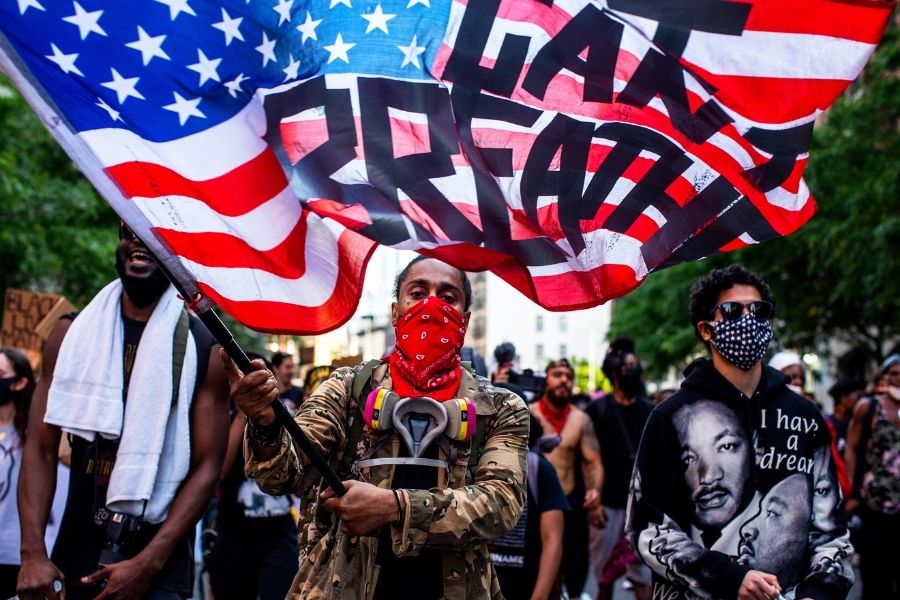
The death of George Floyd reignited a movement. What happens now?
Derek Chauvin, the white police officer who knelt on Floyd, was convicted of two counts of murder as well as manslaughter, a verdict that brought some solace to activists for racial justice

FILE -- Protesters rally in New York, June 4, 2020. Over the next 11 months after the death of George Floyd, calls for racial justice touched nearly every aspect of American life on a scale that historians say has not happened since the civil rights movement of the 1960s. (Demetrius Freeman /The New York Times)
George Floyd had been dead only hours before the movement began. Driven by a terrifying video and word-of-mouth, people flooded the South Minneapolis intersection shortly after Memorial Day, demanding an end to police violence against Black Americans.
The moment of collective grief and anger swiftly gave way to a yearlong, nationwide deliberation on what it means to be Black in America.
First came protests, growing every day, until they turned into the largest mass protest movement in US history. Nearly 170 Confederate symbols were renamed or removed from public spaces. The Black Lives Matter slogan was claimed by a nation grappling with Floyd’s death.
Over the next 11 months, calls for racial justice would touch seemingly every aspect of American life on a scale that historians say had not happened since the civil rights movement of the 1960s.
On Tuesday, Derek Chauvin, the white police officer who knelt on Floyd, was convicted of two counts of murder as well as manslaughter. The verdict brought some solace to activists for racial justice who had been riveted to the courtroom drama for the past several weeks.
©2019 New York Times News Service




